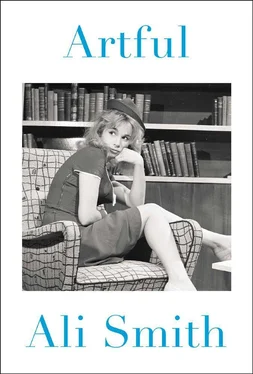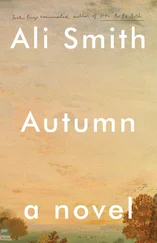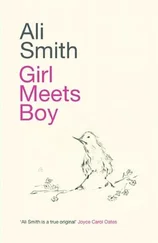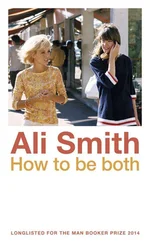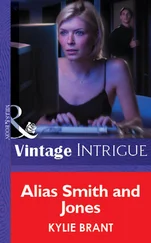But whether it involves a portrait locked away that changes and ages so that a man doesn’t, or a little sweet cake that releases memory, or an arrow that flies backwards and undoes history, or a machine that can travel, or a ghost from the past, present, or future making a miser be generous, or a handmaid from the future, a Cromwell from the past: either way, anyway, it is always about now, both the now in which it is being written and the now in which it is being read. In Aspects of the Novel you can almost sense excitement beyond his customary charming diffidence when Forster writes about how Gertrude Stein ‘has smashed up and pulverised her clock and scattered its fragments over the world like the limbs of Osiris, and she has done this not from naughtiness but from a noble motive: she has hoped to emancipate fiction from the tyranny of time.’ It doesn’t last; Forster’s far too urbane for that kind of violence or primal rite. And such rites of modernism, though they still look alarmingly experimental to the mainstream eye, are old hat to us now a hundred years on, so post is a post is a post is a post. We’re well past the end of the century when time, for the first time, curved, bent, slipped, flashforwarded and flashbacked yet still kept on rolling along. We know it all now, with our thoughts traveling at the speed of tweet, our 140 characters in search of a paragraph. We’re post-history. We’re post-mystery.
5: Please Mr. Post Man, Look and See: Remembrance of Things Post
The twentieth century was wedded to the remembrance of things past, with Proust making the act of remembrance an art of sensory timeslip in the first texts which would become A la Recherche du Temps Perdu in 1913 and with Joyce making an epic forever out of a single passing ordinary day with the serialization of the first chapters of Ulysses not long after.
Then at its center the twentieth century pivots on a vision like this one from Victor Klemperer, the Jewish academic and diarist whose career at the University of Dresden was interrupted in the 1930s by Nazi anti-Semitic laws, who lived out the war years on a knife edge, and who, having survived, just, writes the following in his diary on November 8, 1945, about sitting, not long after the defeat of Hitler’s regime, listening to a talk on the radio (translated here by Martin Chalmers):
Radio Beromünster: Reddar (that’s what the magic word sounded like), the English ray invention, which allowed them to see U-boats and guide air planes by wireless, and gave them victory at sea and in the air. Inserted in the talk a piece of a Hitler speech, the very piece I once myself heard standing outside the offices of the Freiheitskampf . And if the war lasts 3 years — we’ll still have our say! — and if it lasts 4 years…and if 5, and if 6…we will not capitulate! It was his voice! It was his voice, his agitated and inflammatory furious shouting, I clearly recognised it again…And with it applause and Nazi songs. A shatteringly present past…[To think] that this is past, and that its presence can be restored to the present, always and at every moment!
Almost as though he can’t believe such repetition possible, Klemperer apes it here, repeats himself: ‘It was his voice! It was his voice…’ But it’s the phrase ‘a shatteringly present past’ that reveals a vandalism in this particular repetition. Old stories repeat themselves, but always to new ends and always to this end: a renewal of vision. What Klemperer — terribly — doesn’t know is that this past will still be playing in its endless numbing loop on all our tv screens sixty years later in a new century. The god technology, as Klemperer suggests sitting by the radio speaker, is a Pandora of a box; it can make the invisible visible, do wonders, help win and stop foul wars, and out of the same place comes the first shattering, then numbing power to make history repeat until it becomes banality (to use the word Hannah Arendt did to describe Nazi evil).
Its knowing brings with it, like all knowledges, a twin forgetfulness, and the most recent form this forgetfulness takes is made visible here in the following poem by Jackie Kay, whose subject is a poet searching — doing an online search — for an old poem of hers which happens to be about another pivotal moment in time, the time when one century turns into another. Its title is http://www.google.co.uk/
I thought I’d cut and pasted my poem about the year 1999
but when I pressed paste all that came up was
http://www.google.co.uk/
so I decided to look up Mahler symphony no 7 in Wikipedia
but when I went on line Wikipedia was blacked out for 24 hours
and they wanted me to twitter my support
And when I hit google a message said google isn’t your default
browser
which made me feel worried though I don’t understand why
and my poem had vanished: it was a poem about my
grandmother
who was the wife of a miner twice buried alive in the pit,
who survived who came back up into the air in Fife.
It’s a worry if when you go to paste your poem to send to your
friend
your poem has been replaced by http://www.google.co.uk/
If you can’t import your poem or attach your poem
will it be enough to be attached to your poem, to the memory of it
now that it has gone, vanished into cyber space.
Cyber space has no face, not like the face of my grandmother.
Every line of this is true and as I was writing this
even this disappeared for a second and a dashboard appeared
with a clock, a calculator and an icon of safari.
The clock told me it is 3 o’clock in Amsterdam.
Kay’s poem about a lost poem is all about surface and depth. It asks about a disappearing truth, a lost attachment to the past, a lost attachment to the process of art. It makes visible, instead, a blocked or diverted set of connections. It asks what, in this case, attachment actually means, when it (and we?) can so easily be disappeared, when histories of survival and stratification can so simply vanish in front of our eyes. Its last stanza is a driverless car, a place where the present is slippery, can’t be trusted; the ‘true’ lines — precariously there one minute, gone the next — echo the lost lines of the human face, exchanged not just for the face of a clock but a clock that tells an irrelevant time.
*
“Tis down in yonder garden green,
Love, where we used to walk,
The finest flower that ere was seen
Is withered to a stalk.
‘The stalk is withered dry, my love,
So will our hearts decay;
So make yourself content, my love,
Till God calls you away.’
I’d been at a loss so I’d gone and stood in the study, which I only ever did when I felt the very worst. The desk was piled up with the talks you’d been supposed to give at that university. On the top was the one about time. I’d picked the first page up (suncurled, dried, a bit faded), I’d glanced at it and at the still quite pristine page below it and I’d laughed when I’d seen Walter Benjamin’s name, because, much like my brother used to shout when we were kids in the back of the car and we were driving south, Ten points to the first person who can see the Forth Road Bridge, or my father when he was teaching me to drive, Ten points if you can hit that woman crossing the road, what you used to say when you’d make me come with you to those boring conferences was, Ten points to the first person who hears someone say the words Walter Benjamin.
My own job was trees; I knew about how they prepare themselves for winter way back in the summer, how they ready themselves in the winter for the fruiting months. Unlike flowers which die right down every year and have to start all over again, break the surface again, trees can keep going from where they left off. I knew about small willow moths, clearwings, leopard moths, buff-tip moths, and goat moths and exactly what kinds of willow they preferred.
Читать дальше
